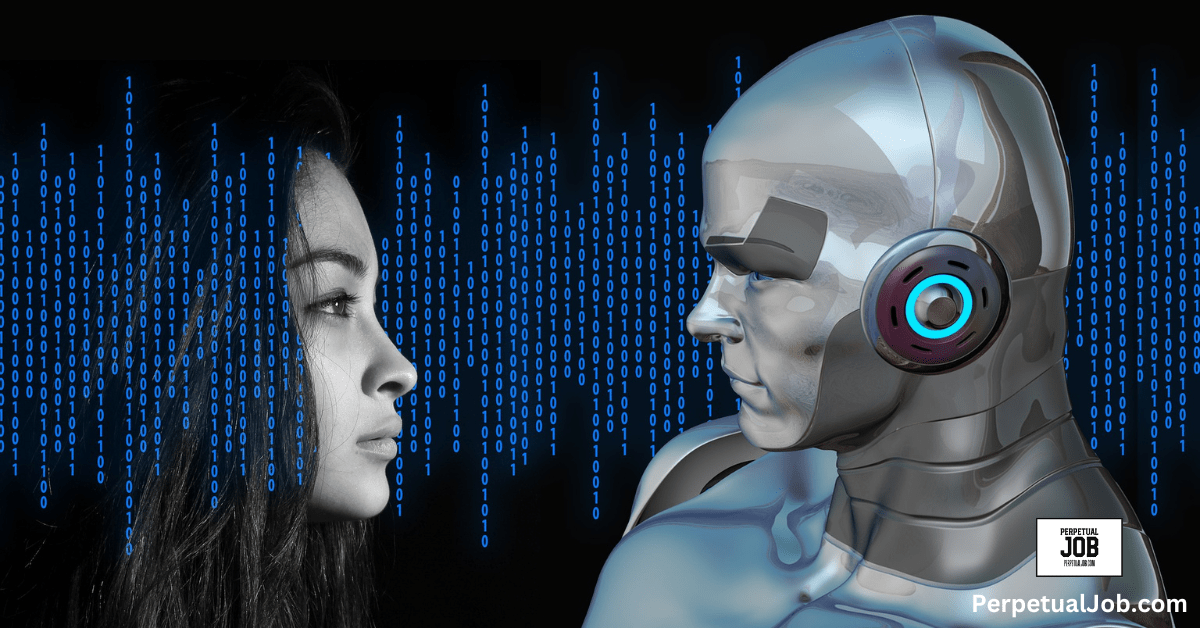Introduction:
Since artificial intelligence (AI) is developing so quickly, the workplace is going through a seismic transformation. A growing number of jobs are being affected by AI technologies as they continue to advance. Understanding and preparing for the changes brought on by AI is essential for both individuals and organisations, from job displacement and automation to the introduction of new jobs and skill needs. The influence of AI on the Job market will be examined from a variety of angles in this blog article, and we’ll also talk about preparation methods.
Jobs in the Age of AI:
The nature of work is changing dramatically in the AI era. Among other sectors, AI is revolutionising industry, healthcare, banking, and customer service. Automation of traditional work functions raises worries about job displacement. However, AI also generates new employment prospects that call for specialised knowledge and human-AI cooperation. In order to manage the shifting terrain, it is crucial to comprehend this progression.

Job Displacement and Automation:
AI-powered automation has the potential to replace specific work responsibilities, raising worries about employment losses. The scope of possible employment displacement caused by AI technology is revealed through studies and data. It is crucial to emphasise, however, that not all jobs are equally vulnerable to automation. Individuals may make educated judgements about their career trajectories by analysing which job tasks are more likely to be automated.
Reshaping Job Roles and Skill Requirements:
By enhancing human capabilities and generating hybrid positions that need a combination of human talents and AI competence, AI is altering work roles. As people must regularly upgrade their abilities to remain relevant in the AI-driven labour market, adaptability and lifetime learning become essential. The value of developing abilities like critical thinking, problem-solving, creativity, and emotional intelligence will rise.
Opportunities Created by AI:
AI may replace certain occupations, but it also opens up new career prospects. Across a range of industries, AI technology has the potential to increase production, efficiency, and creativity. To fully utilise the potential of AI, individuals and organisations should investigate these new prospects and make investments in programmes that will re-skill and upskill them. Accepting entrepreneurship and disciplines associated with artificial intelligence can lead to new and interesting job options.
Regulations for AI and ethical issues:
As AI technology develops, ethical issues related to responsibility, prejudice, and privacy become more prominent. To enable responsible AI deployment, organisations and governments must create rules and laws. A sustainable AI-driven employment market depends on striking a balance between innovation and moral issues.
The AI Job Market of the Future:
People must adapt and get ready for the future if they want to succeed in the AI-driven employment market. The importance of ongoing education cannot be overstated, whether it comes from formal schooling, online courses, or on-the-job training. Developing human-specific abilities like creativity, emotional intelligence, and critical thinking will complement AI technology. The secret to success will be to embrace change, be receptive to new opportunities, and promote a culture of lifelong learning.
Conclusion:
AI will have a significant influence on the job market, thus preemptive planning is necessary. Individuals and organisations must adapt to and embrace the changes as AI continues to redefine employment positions. The future of work will be driven by AI, thus lifelong learning, adaptability, and a desire to engage with AI technology will be essential. We can assure a future in which humans and AI coexist peacefully for the good of all by recognising the potential, resolving ethical problems, and acquiring the essential skills